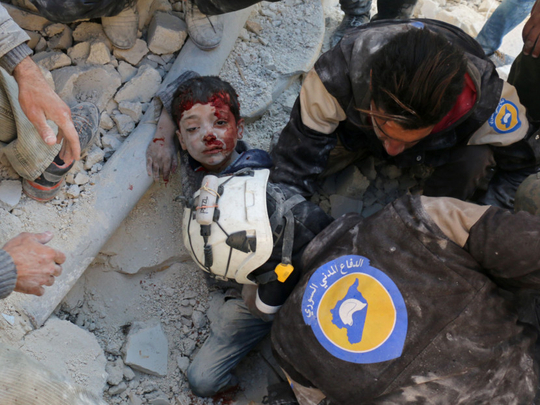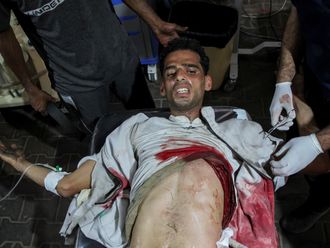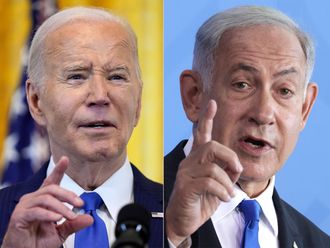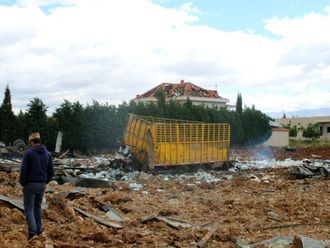
Geneva, Ankara: Syrian armed opposition groups in besieged east Aleppo have agreed to a UN plan for aid delivery and medical evacuations, but the UN is waiting for a green light from Russia and the Syrian government, humanitarian adviser Jan Egeland said on Thursday.
Some 275,000 people are trapped in east Aleppo, where the last UN food rations were distributed on November 13. Trucks are ready in Turkey and west Aleppo to bring aid, but the UN needs 72 hours to prepare the “big, complex and dangerous operation”.
“We hope to have a full green light from both the Russian side and Syrian government side. The signal today from the Russia side was positive,” Egeland told reporters. “In many ways Plan B is that people starve. That cannot be allowed to happen.”
Separately, the Turkish army blamed the Syrian regime for an air strike on Thursday in northern Syria that killed three soldiers, the first time it has accused Damascus of killing its soldiers since launching its three-month military incursion.
The Turkish army said the strike took place at 3.30am without indicating where in Syria, although local media said it took place in the Al Bab region.
“In the air strike assessed to have been by Syrian regime forces, three of our heroic soldiers were killed and 10 soldiers wounded, one seriously,” the armed forces said in a statement on its website.
Turkish media reported earlier that the attack was by Daesh terrorists.
The prime minister’s office slapped a broadcasting ban on coverage of the strike an hour after the military’s statement, Turkey’s broadcast watchdog said on its website.
The wounded soldiers were taken to hospitals in Turkey’s southeastern cities of Kilis and Gaziantep close to the Syrian border, the official news agency Anadolu said.
The Turkish military launched an operation — dubbed ‘Euphrates Shield’ — with tanks and air power in August to support Syrian opposition fighters seeking to retake territory from Daesh in northern Syria.
The Ankara-backed rebels comprise several brigades rather than one organised force, according to experts.
Hundreds of Turkish soldiers are taking part in the operation, which President Recep Tayyip Erdogan said this week was pushing forward with its aim of taking Al Bab from Daesh.
“We reached Al Bab right now and besieged it from the west,” Erdogan said in a speech on Tuesday.
The operation has also targeted Syrian Kurdish militia, whom Turkey views as linked to its outlawed Kurdistan Workers’ Party (PKK), which has staged an insurgency in Turkey since 1984.
The PKK is proscribed as a terror group by Washington and Brussels but not by the United Nations.
“That won’t do. After that [Al Bab], we will go towards Manbij” to remove elements from the Syrian Kurdish Democratic Union Party (PYD) and People’s Protection Forces (YPG) militia, Erdogan said.
Kurdish-led forces recaptured Manbij from Daesh in August but Ankara has called for them to leave what Turkey emphasises is an Arab majority town.
Erdogan has repeatedly vowed to stop Syrian Kurdish forces from creating an autonomous Kurdish “canton” on Turkey’s southern border, describing it as a “terror corridor”.
Since the offensive began, the rebels captured the Daesh stronghold of Jarabulus, cleared Daesh from Al Rai and retook the symbolically important town of Dabiq without much resistance.
The latest deaths raise to at least 15 the number of Turkish soldiers killed since Turkey began its operation in northern Syria.
Most were killed by Daesh but one soldier died in an attack blamed on the YPG militia.











